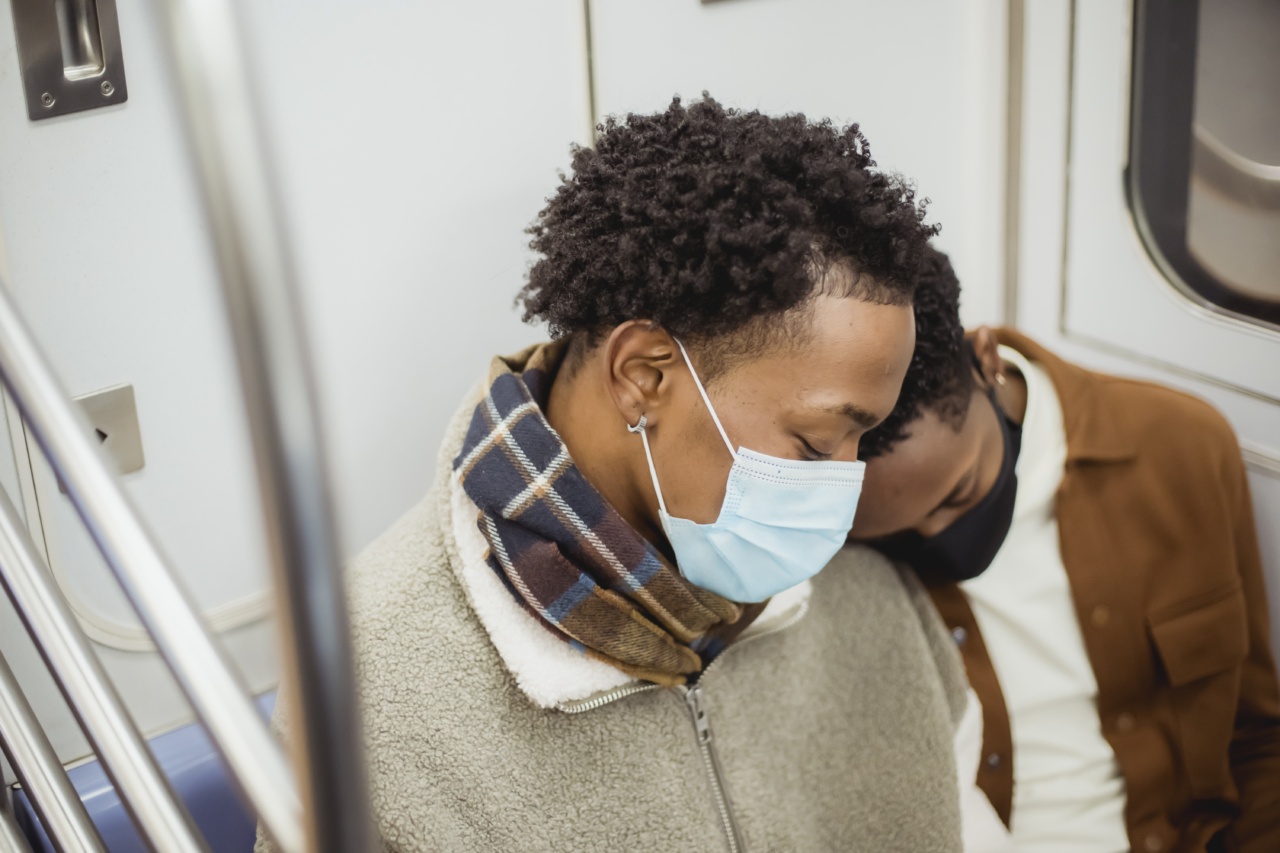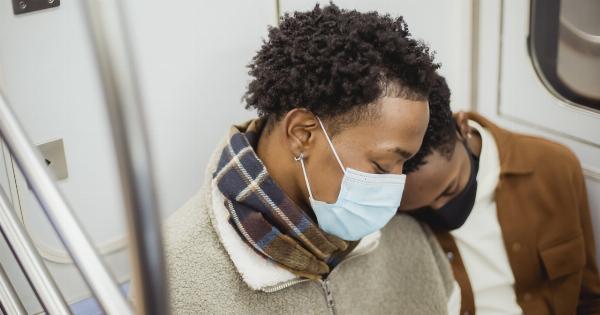Sleep apnea is a sleep disorder that affects millions of people around the world. It occurs when a person’s breathing is repeatedly interrupted during sleep.
These interruptions, known as apneas, can last for a few seconds to a few minutes and can occur multiple times throughout the night. Sleep apnea often goes undiagnosed, leading to various health problems and negatively impacting the quality of life. However, there is hope for those suffering from this condition – the mask!.
Understanding Sleep Apnea
Before delving into the benefits of using a mask for sleep apnea relief, it is important to understand the condition itself. There are three types of sleep apnea:.
Obstructive Sleep Apnea (OSA)
Obstructive sleep apnea is the most common type and occurs when the throat muscles intermittently relax, blocking the airway. This obstruction leads to pauses in breathing and can cause a person to wake up briefly to restore normal airflow.
The disrupted sleep patterns can result in excessive daytime sleepiness, fatigue, and other complications.
Central Sleep Apnea
Central sleep apnea is less common and is characterized by the brain failing to signal the muscles to breathe. Unlike obstructive sleep apnea, there is no physical blockage in the airway. Instead, the issue lies with the central nervous system.
People with central sleep apnea may also experience respiratory issues during waking hours.
Complex Sleep Apnea Syndrome
Complex sleep apnea syndrome, also known as treatment-emergent central sleep apnea, is a combination of obstructive sleep apnea and central sleep apnea.
It typically starts as obstructive sleep apnea but transforms into a central sleep apnea over time, making it more challenging to treat.
The Importance of Sleep Apnea Relief
Sleep apnea can have serious health consequences if left untreated. Some of the potential complications include:.
1. High Blood Pressure
Sleep apnea is closely linked to hypertension or high blood pressure. The cessation of breath during apneas puts stress on the cardiovascular system, resulting in elevated blood pressure levels.
Proper sleep apnea relief can help manage blood pressure and reduce the risk of heart disease.
2. Heart Problems
Untreated sleep apnea can also lead to various heart problems, including irregular heartbeat (arrhythmia), heart attacks, and heart failure.
The disrupted sleep patterns and oxygen deprivation put additional strain on the heart, making it more susceptible to cardiovascular issues.
3. Type 2 Diabetes
People with sleep apnea have an increased risk of developing type 2 diabetes. The condition affects glucose metabolism, leading to insulin resistance.
Continuous positive airway pressure (CPAP) therapy, which involves using a mask, can improve insulin sensitivity and help manage diabetes.
4. Weight Gain and Obesity
There is a bidirectional relationship between sleep apnea and weight gain. Obesity increases the risk of sleep apnea, and sleep apnea, in turn, contributes to weight gain.
The excessive fatigue caused by sleep interruptions affects hormone regulation, leading to increased appetite and cravings for sugary and high-fat foods. By providing relief from sleep apnea, the mask can contribute to weight management.
5. Daytime Sleepiness and Reduced Quality of Life
The constant interruptions in sleep can result in excessive daytime sleepiness, fatigue, and irritability. People with sleep apnea often struggle to stay awake during the day, affecting their productivity levels and overall quality of life.
Using a mask for sleep apnea relief can significantly reduce these symptoms, enabling individuals to enjoy more energy and improved mood.
The Role of the Mask in Sleep Apnea Relief
One of the most effective treatments for sleep apnea is continuous positive airway pressure (CPAP) therapy. CPAP therapy involves wearing a mask that delivers a constant flow of air to keep the airway open during sleep.
The mask is connected to a machine that regulates the air pressure and ensures consistent breathing throughout the night.
How Does the Mask Work?
The CPAP mask covers the nose and/or mouth, depending on the individual’s needs. The machine connected to the mask delivers a stream of pressurized air, creating a sort of “air splint” to keep the airway from collapsing during sleep.
The continuous flow of air acts as a pneumatic splint, preventing obstruction and allowing for uninterrupted breathing.
Benefits of Using a CPAP Mask
Using a CPAP mask for sleep apnea relief offers numerous benefits, including:.
1. Reduced Apneas and Hypopneas
The primary goal of CPAP therapy is to reduce the frequency and duration of apneas and hypopneas – partial blockages that lead to shallow breathing.
By delivering pressurized air, the mask helps maintain an open airway, preventing interruptions in breathing and restoring quality sleep.
2. Improved Sleep Quality
Using a CPAP mask promotes better sleep quality by allowing uninterrupted breathing. With a continuous flow of air, individuals experience fewer awakenings during the night, leading to a more restful and rejuvenating sleep.
3. Increased Oxygen Levels
One of the major consequences of sleep apnea is decreased oxygen levels in the blood.
By preventing apneas and improving oxygen saturation, CPAP therapy using a mask ensures that vital organs receive adequate oxygen, reducing the risk of associated health problems.
4. Enhanced Daytime Functioning
As the CPAP mask reduces daytime sleepiness and fatigue, individuals experience enhanced daytime functioning.
They have improved concentration, alertness, and cognitive abilities, allowing them to be more productive both at work and in their personal lives.
5. Reduced Health Risks
Effective sleep apnea relief through CPAP therapy significantly reduces the risk of cardiovascular problems, diabetes, and other associated health conditions.
Consistently using the mask can improve overall health and reduce the likelihood of developing serious complications.
Finding the Right Mask for Sleep Apnea Relief
With various types of masks available, it is important to find the right one for individual comfort and needs. The options include:.
1. Nasal Masks
Nasal masks cover the nose and are a popular choice for individuals who breathe predominantly through their nose. They are generally lightweight and provide a secure fit for uninterrupted airflow.
2. Full Face Masks
Full face masks cover the nose and mouth, making them suitable for individuals who breathe through both their nose and mouth or have frequent nasal congestion. They are beneficial for those who tend to breathe through their mouth during sleep.
3. Nasal Pillow Masks
Nasal pillow masks are the smallest and least intrusive option. They fit directly into the nostrils, forming a seal, and are ideal for individuals who feel claustrophobic with larger masks.
Ensuring Comfort and Compliance
For CPAP therapy to be effective, it is crucial to ensure comfort and compliance with mask usage. Here are a few tips:.
1. Proper Fit
Work with a healthcare professional to find a mask that fits well and provides a secure seal. A properly fitted mask enhances comfort and prevents air leakage.
2. Mask Adjustments
Adjust the straps and headgear to fit snugly but not too tight. This ensures that the mask stays in place throughout the night without causing discomfort.
3. Regular Cleaning
Clean the mask regularly as per the manufacturer’s instructions to prevent the buildup of dirt, oils, and bacteria. A clean mask prolongs its lifespan and promotes better hygiene.
4. Gradual Adaptation
It may take some time to adapt to wearing a mask during sleep. Start by wearing it for short periods during the day to get used to the sensation and then progress to overnight use. Patience and persistence are key.
Conclusion
Sleep apnea relief is within reach with the help of the CPAP mask.
By providing continuous positive airway pressure, the mask ensures that individuals with sleep apnea can enjoy uninterrupted restful sleep, improved health outcomes, and an enhanced quality of life. Take the first step towards relief and consult with a healthcare professional to determine the most suitable CPAP mask for your needs.



























